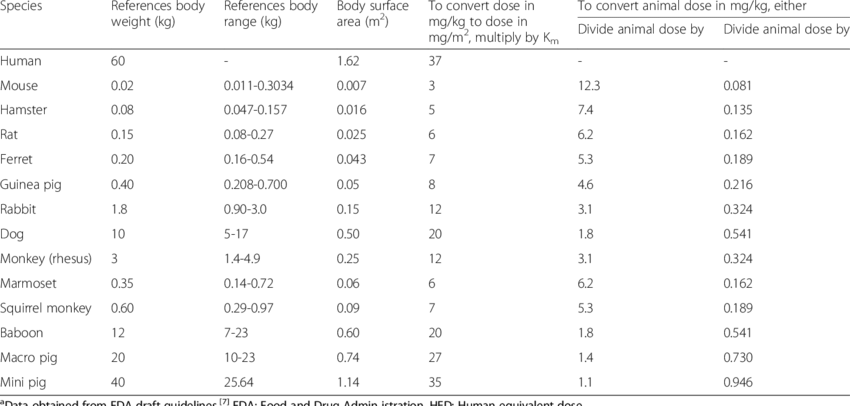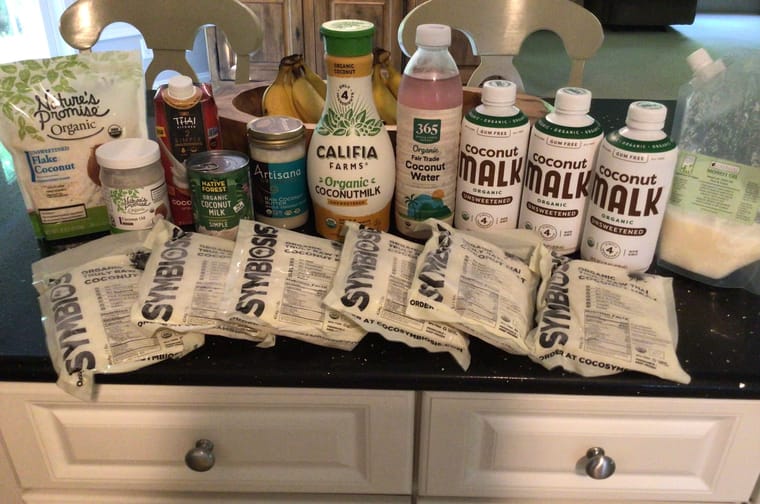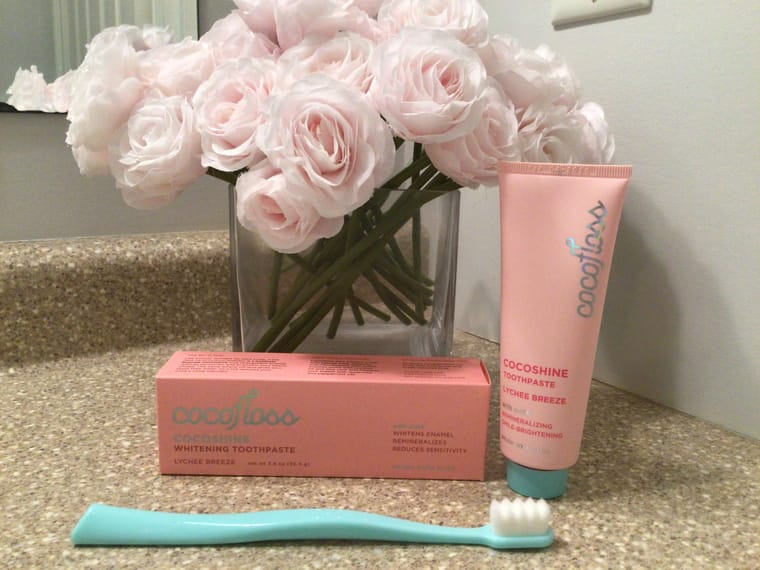Study: coconut oil "has the potential to intensify the morphophysiological alterations that occur in the liver during aging" (accelerated signs of liver aging in gerbils)
-
https://pubmed.ncbi.nlm.nih.gov/39233189/
Coconut oil affects aging-related changes in Mongolian gerbil liver morphophysiology
Abstract
Aging causes changes in liver morphophysiology, altering hepatocyte morphology and organ function. Due to its antioxidant and anti-inflammatory properties, coconut oil has been used as a therapeutic agent in diets, in an attempt to attenuate alterations in the liver naturally caused by aging. Herein, we evaluated the effects of coconut oil consumption during aging on Mongolian gerbil liver morphophysiology. The animals were divided into three experimental groups: the gerbils in the Adult Control Group (AC) were euthanized at 3 months of age, the gerbils in the Old Control Group (OC) at 15 months of age, and the gerbils in the Coconut Oil Group (CO) received 0.1 ml/day of coconut oil for 12 months and were euthanized at 15 months of age. Prolonged consumption of coconut oil during aging prevented the animals and the liver from gaining mass. However, the other results showed that coconut oil intensified the morphophysiological alterations of aging, promoting an increase in the hepatocyte cytoplasm and nuclei. In addition, an increase in blood vessels, reticular fibers, lipid droplets, and lipofuscin granules were observed in the CO group. Finally, the results also demonstrated that coconut oil promotes an increase in lipid peroxidation, indicated by an increase in MDA levels. We therefore conclude that coconut oil has the potential to intensify the morphophysiological alterations that occur in the liver during aging. -
-
@Wabi-sabi said in Study: coconut oil "has the potential to intensify the morphophysiological alterations that occur in the liver during aging" (accelerated signs of liver aging in gerbils):
That works out at 280g of oil a day for a 70kg Human,
I've been asking ChatGPT ton convert. No clear answer as it didn't make sense.
Got the same answer from another source:
0.1 ml/day of coconut oil has been given to an ape. How much oil does it make for a 70 kg person?
=> 0.1 ml is equivalent to about 2-3 drops of oil. Let’s say 2.5 drops.
An ape is +/ 7 kg => x10 for a man. => 25 drops.
A single drop is equivalent of +/ 0.015 g. x 25 = 0.37 g.
Edit: it could be 1 ml / Kg weight. An ape is 7 kg according to Chatgpt.
1 ml = 0.92 g coconut oil according to a quick google research.
=> 0.92 g x 7 Kg = 6.44 g.
x 10 for a man of 70 kg. => 64 g coconut oil for a man.Source of the study (no need to go and read):
Coconut oil affects aging-related changes in Mongolian gerbil liver morphophysiology
https://pubmed.ncbi.nlm.nih.gov/39233189/
https://doi.org/10.1016/j.jnutbio.2024.109749 +
Highlights
Coconut oil intensifies angiogenesis in the liver during aging.
Coconut oil alters hepatocyte morphology and increases the accumulation of lipid droplets.
Lipid peroxidation is intensified during aging by coconut oil consumption.My opinion: It doesn't make sense to consider 0.37 g. As we should speak about 1 or 2 tbsp (15 to 30 ml) for a man.
-
@LucH Got my figures wrong I meant 8.75 grams/day for 70kg Human, based on gerbil 100g Merci Beaucoup:
-
@Wabi-sabi said in Study: coconut oil "has the potential to intensify the morphophysiological alterations that occur in the liver during aging" (accelerated signs of liver aging in gerbils):
I meant 8.75 grams/day for 70kg Human
OK. I won't take the study into account as it's probably a very high amount of ingested coconut oil. Any friendly food will become the devil when in excess.
Each time I eat MUFA (olive oil or macadamia) or some ham at breakfast or 6 half pecan nuts in my oat, I take one tsp coconut oil. I cook with coconut oil (and butter added at the end in some circumstances). -
@LucH how is 8.75g a high dose
-
@eduardo-crispino said in Study: coconut oil "has the potential to intensify the morphophysiological alterations that occur in the liver during aging" (accelerated signs of liver aging in gerbils):
how is 8.75g a high dose
It's not.
I was referring to the study. Surely a High level, even if not mentioned.
=> 64 g coconut oil for a man. -
This post is deleted! -
This post is deleted! -
This post is deleted! -
@LucH Male gerbils typically weigh 2-3 ounces (60-90 grams)
0.1 grams for a gerbil is 1.1kg-1.6g per kg of body weight (0.1/0.06, 0.1/0.9).
There isn't a HED conversion figure for gerbils - but gerbils bodyweight, typically falls between hamsters and rabbits.

Lets use the HED conversion that falls between a guinea pig and a rabbit, given the HED conversion is directly correlated to bodyweight and gerbils bodyweight are inbetween hamsters and rabbits.
So divide 1.1 and 1.6 by 0.27
So the HED dose is 4g and 5.92g of oil per kg of bodyweight
@Wabi-sabi so Wabi Sabis estimate of 280grams of oil for a 70kg man is correct:)
-
Hi before you guys frantically trying calculating the optimal coconut oil for human consumption, I just want to provide a different interpretation of this study base on basic biochemistry knowledge
-
Coconut oil is rich in medium-chain saturated fatty acids (MCFAs), which are rapidly absorbed and preferentially oxidized by the liver for energy rather than stored as fat.
-
The basal diet given to both Coconut group (CO) and Control group (OC), contains mostly unsaturated fats, which are more prone to being stored in liver tissue as triglycerides:
The basial diet typical for this Mongolian gerbils study is as follows:
- Macronutrient breakdown (approximate):
- Carbohydrates: ~50–60%
- Proteins: ~20–25%
- Fats: ~5–10% (Mostly from vegetable oils)
- If the liver preferentially burns the coconut oil’s for fuel, it might:
Spare/accumulate more unsaturated fats from the basal diet in the liver.
The study observed increased lipid peroxidation markers and lipid droplet accumulation in the CO group’s liver, which aligns with increased oxidative stress possibly due to stored unsaturated fats undergoing peroxidation.
In addition, the study mentioned the CO group exhibited a prevention of the typical age-related increase in both body and liver mass compare to Control group, this might further suggest the oxidative damage is localized in the liver of CO group whereas the damage is spread in the entire body of OC group
-
-
This post is deleted! -
@herenow said in Study: coconut oil "has the potential to intensify the morphophysiological alterations that occur in the liver during aging" (accelerated signs of liver aging in gerbils):
It should be more concerning if your ancestors were gerbils or Europeans (@Jennifer s) who never saw a coconut in their life.
Darn gerbil ancestry. First it’s the excess body hair and now this. Can’t catch a break. Maybe it’s not so bad, since I’m an American gerbil, not an European one. Kidding aside, I grew up on French, Cantonese and Polynesian cuisine and coconut was a staple. I even overcame gallbladder disease and liver “sludge,” as the ultrasound tech called it, while on a diet with coconut as my fat source, the only one that didn’t trigger attacks, and it’s still my preferred fat source, not just for consumption, I also slather it (monoï oil, specifically) on my body daily. Even my tooth paste has coconut, which reminds me, I was supposed to do a review of it on the forum. No exaggeration, I’m saturated in the stuff—coconut water, young coconut meat, coconut milk, coconut cream, coconut oil, coconut butter, coconut flakes…


-
@Jennifer Hi Jennifer I remember you from RPF, good times, and if you don't mind; She’s slicker than a summer breeze, and twice as smooth,
Coconut oil in her purse — that’s her power move.
She cooks with it, sips it, swears it clears her skin,
A goddess in the kitchen and a glow from within.
Don’t need perfume — she smells like vacation,
Leaves a trail of hydration and mild flirtation

-
Aww…you’re a poet, @Wabi-sabi. I love it! Smelling like vacation is exactly why I use the monoï oil. It transports me to Tahiti.

-
It should be more concerning if your ancestors were gerbils
Lol. I don't think it's isolated to gerbils per se, you probably will get similar results if the study used a different mice. The issue I see is the high amount of PUFA in standard lab diet, we can't draw the conclusion coconut oil is the culprit when there is another suspect.
-
This post is deleted! -
This post is deleted! -
@herenow said in Study: coconut oil "has the potential to intensify the morphophysiological alterations that occur in the liver during aging" (accelerated signs of liver aging in gerbils):
@Jennifer said in Study: coconut oil "has the potential to intensify the morphophysiological alterations that occur in the liver during aging" (accelerated signs of liver aging in gerbils):
I grew up on French, Cantonese and Polynesian cuisine and coconut was a staple....I even overcame gallbladder disease and liver “sludge,” as the ultrasound tech called it,
Is it possible that your French ancestry made you vulnerable to coconut products? Could butter or even olive oil be safer?
I have been using lots of coconut products off an on including the oil so it's something I think about from time to time. I'm not at all Polynesian.
Butter/dairy fat triggered my gallbladder attacks, but not coconut fat. Do you have any symptoms that are exacerbated by coconut or any liver tests that would cause you to be concerned?
Personally, I don’t feel confident in using ancestry to determine the best foods for me. Even if I did, there are question marks surrounding my ancestry. What I do know for certain is that the gallstones and liver sludge were due to thyroid disease that was triggered by the stress of mountain climbing in extreme conditions. My gallbladder and liver were healthy prior, and their diseased state completely reversed after supplementing thyroid, confirmed by a repeat ultrasound after the initial diagnosis, so climbing mountains in snow and flooded trails up to my waist, rapid river crossings, sub-zero temps with up to 60 mph winds that thrashed me against boulders like a ping pong ball, the issue was not my French ancestry and verging-on-the-need-of-an-intervention intake of the delectable drupe from the tree of life :), it was my foolishness in saying yes when my brother proposed the idea that we, having absolutely no prior experience, and I as a 45 kg Olive Oyl, climb the largest mountains in our region, with some of the worst weather in the world, to earn a patch in 7 months.
